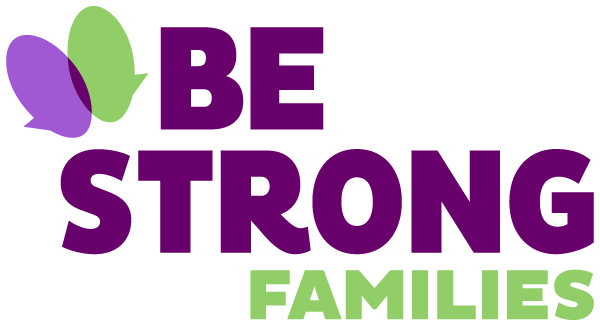Pandemic Resource – Supporting Child, Caregiver, and Family Well-Being in Times of Crisis: Strategies to Promote Effective Virtual and Phone Engagement
What are the strategies to engage and support child and family well-being during the pandemic? In Be Strong Families’ January 22, 2021 webinar, Julie Fliss and Dr. Valerie Spiva Collins joined us for an interactive presentation that introduced relevant resources that are based on the Protective Factors and build on family strengths to foster child and youth well-being.
Julie Fliss, MSW, is a Child Welfare Program Specialist with the Children’s Bureau’s Office on Child Abuse and Neglect and a national expert on child abuse prevention. She has over 15 years of experience in the field of child welfare at the local, state and federal levels, specifically in the areas of community-based prevention, child protection, continuous quality improvement, family-centered practice.
Dr. Valerie Spiva Collins is the Director of the FRIENDS National Center for Community Based Child Abuse Prevention. FRIENDS is a TA Provider funded by the Children’s Bureau, and it provides onsite and virtual trainings and consultation to CBCAP State Lead Agencies in all 50 states, D.C. and Puerto Rico. Valerie has worked the last 35 years with public health programs that serve children, youth, and families in substance abuse, teen pregnancy, and injury and violence prevention and intervention.
The focus in this webinar was the Children Bureau’s new resource—Supporting Child, Caregiver, and Family Well-Being in Times of Crisis: Strategies to Promote Effective Virtual and Phone Engagement. The Children’s Bureau developed the resource as a response to the virtual needs created by a global pandemic, with the goal of helping people dig deeper into conversations about what we can do to actively support children and caregivers during this time.
The resource is organized by the five Protective Factors, and each section in the resource focuses on what’s critical right now during the lockdown—Parental Resilience, Social-emotional Competence of Children, Concrete Support in Times of Needs, and more! Each of these sections contain a variety of questions that professionals can address with parents/caregivers and with children/youth.
During the webinar, Julie highlighted one potential silver lining from the pandemic and subsequent lockdown, and that is the hope that it could normalize the fact that parenting is not easy. It’s a strength to ask for help. We all have the tools, but at times we are going to be challenged. At the same time, it should be normalized to offer support and to abolish the rampant individualism of parenting. This is exactly what the Protective Factors framework does—it gets beyond the isolation of individualism and connects us with others.
At end the webinar, Dr. Valerie Spiva Collins shared three FRIENDS Resources that she thought the Be Strong Families community would be interested in content-wise that would also be usable in a virtual format. Check them out below:
You can view the full webinar here, and you can join us for upcoming webinars whenever your schedule allows. If you or your colleagues would like to host a webinar with us, contact us.
